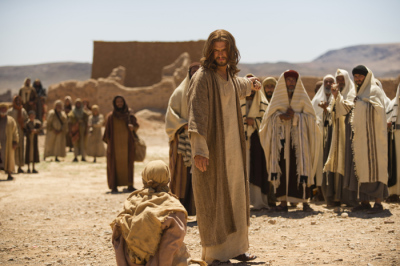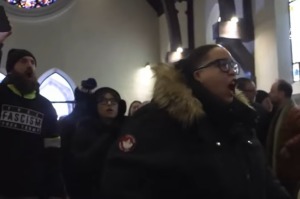Refugee Jesus and Paula White

Maybe there should be a moratorium on Protestants quoting or citing the Bible when discussing border policy or immigration. Whether conservative or liberal, the end result is typically unpleasant.
Recently Florida pastor Paula White, often cited as a Trump spiritual advisor and a health and wealth preacher, weighed in, per The Christian Post:
I think so many people have taken biblical scriptures out of context on this, to say stuff like, 'Well, Jesus was a refugee,'" White responded. "Yes, He did live in Egypt for three-and-a-half years. But it was not illegal. If He had broken the law then He would have been sinful and He would not have been our Messiah.
Of course Jesus was only a toddler when His parents took Him to Egypt to escape the wrath of King Herod. So He wasn't morally culpable for their actions. Did Joseph and Mary break the law when fleeing to Egypt? It's often fashionable to describe the Holy Family as perhaps the first illegal immigrants.
They were refugees but there's no evidence Joseph and Mary broke any laws when entering Egypt, which also was part of the Roman Empire. As biblical scholar James Hoffmeier points out in his bookThe Immigration Crisis: Immigrants, Aliens, and the Bible, their likely route to Egypt included many Roman forts, and likely they proceeded openly and legally. Probably they lived among Egypt's large Jewish community before returning home after Herod's death.
Claiming Jesus was an illegal immigrant is just one of many trite pseudo biblical political points common in religious advocacy on immigration. Other talking points focus on Old Testament calls for hospitality towards sojourners as supposedly definitive commands for the U.S. to install more permissive immigration policies.
Most of the recent Christian conversation about border policies has been shrill, reflexive and often reliant on weaponizing Bible verses for contemporary political advantage. America isn't ancient Israel. And as Hoffmeier explains, ancient Israel didn't practice open borders or anything close to it.
On the conservative side, evangelical scholar Wayne Grudem recently argued that a border wall with Mexico was supported by the many God-ordained walls in Scripture, such as the rebuilt wall that Nehemiah prophesied for Jerusalem. Grudem was widely mocked, but many of his critics have exploited scripture in the same way for opposing stricter border security.
Some denunciations of Paula White's comments have insisted Jesus was indeed a law breaker, for which He was ultimately crucified. This claim misses the point about Jesus, who was Himself the very fulfillment and perfection of the law. His enemies distorted the law with their own self serving pharisaic interpretations, which He repeatedly admonished.
We Protestants in our politics often want to think we have direct guidance from Him on public policy issues, as proven by a few select Bible verses we learned in Sunday school. But the Bible almost never gives us such detailed counsel for contemporary statecraft. Instead we have Scripture, the church and Christian tradition offering broad principles about human dignity and divine justice that should inform our debate and decision making.
None of us can claim infallible authority in our political preferences. And we should be reluctant to deploy Bible verses as political debating points. Paula White's misuse of scripture to support current border policies instead of provoking ridicule should instead inspire reflection on why we Protestants, conservative and liberal, repeatedly make her mistake.
Originally posted at juicyecumenism.com



























